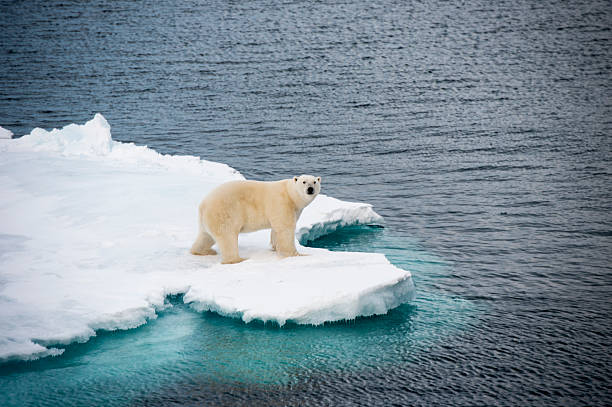Staff Editorial: Everyone needs to take steps to improve their carbon footprint
The severity of climate change and ways you can help
Many students may know about the severity of climate change and how it is affecting the planet’s current weather and geography. However, there is not enough awareness about how it affects important aspects of our daily lives. It is no surprise to claim that humans don’t make much of an effort to look out for the planet and conserve its natural resources. Decades of neglect stem from a lack of awareness that has been passed down through generations about how severe climate change truly is.
Climate change is defined as long-term shifts in temperatures and weather patterns. Whenever fossil fuels like coal or oil are burned to power engines in machines and, in turn, produce energy, greenhouse gasses such as carbon dioxide are released into the air. Greenhouse gasses trap heat in the atmosphere, which gradually warms the planet unnaturally. When the earth’s climate is warmed to anything past its usual climate, severe changes are bound to occur.
Since the 19th century, Earth’s surface temperature has increased by around 1ºC. This may sound like a minor change to the planet’s temperature, but the rate at which this temperature is increasing is alarming. This rate is expected to rise 1.5ºC in the next five years. With the track the world’s climate is on now, global warming is projected to reach around 3.2°C by the end of the century. Scientists say if the Earth warms 2ºC from its current state, we can expect to see “a profoundly disrupted climate with fiercer storms, higher seas, animal and plant extinctions, disappearing coral, melting ice and more people dying from heat, smog and infectious disease.”
Due to different temperatures causing environmental changes that can create extreme living conditions, animals have been forced to migrate to places with a more manageable climate. Because of this migration, food webs and the ecosystems they originally make up are put under more stress, with many even completely collapsing.
Additionally, humans are moving away from places where the impacts of rising temperatures and increase of fatal natural disasters occurring are becoming unmanageable. According to USGS, “rising sea levels expose higher locations not usually subjected to the power of the sea and to the erosive forces of waves and currents.” This growing issue is dangerous because a lot of these structures are now being exposed to elements they were simply not designed to withhold. A recent natural disaster, Hurricane Ian, struck Florida on Sept. 28 and was the deadliest hurricane to hit Florida since the Labor Day Hurricane of 1935. Most of the victims of the storm died by drowning after their homes were hit by the storm surge. Natural disasters similar to Hurricane Ian are becoming more severe as a result of global warming within the water and air, which severely impacts humans around the world.
Other notable factors contributing to climate change that are worth mentioning include burning fossil fuels to generate power, creating carbon emissions by manufacturing goods, deforestation, using individual gas-powered transportation such as cars or buses, producing food, powering buildings and consuming too much resources, whether that is food, clothing, electronics or plastics. While climate change is a large issue, it’s the effort from individual people that can really make a difference. With more awareness about how changes in the climate are affecting our own lives, as well as things we participate in, many people are starting to see why working toward improving the climate and producing less carbon emissions is imperative.
Some may argue that climate change isn’t a very big issue because of how it has been swept under the rug for years. However, the avoidance of the impacts we have on our environment is precisely what is worsening the issue. Scientists working with the United Nations first warned humans that the carbon emissions they were producing were dangerous over three decades ago. They said that there would be “profound consequences” for humans and the environment if they did not act quickly together to fix the matter. According to the Washington Post, humans have altered the environment at an unprecedented pace. Unless people around the globe can “rapidly and dramatically” improve their carbon footprint, frequent disaster is in the near future.
There is still a long way to go before we will fix the problem and reverse the effects of climate change completely. However, we can help speed up the process by making minor changes to our everyday lives such as taking quicker showers, biking or walking instead of using cars and buses to travel shorter distances, hand-washing dishes and watering the lawn less. Avoiding physical waste can be as simple as drinking water from a reusable bottle instead of buying bottled water, bringing reusable bags to the grocery store instead of using plastic ones, trying to buy produce in more sustainable packaging instead of the plastic bags provided and picking up trash around you when you see it.
It takes one decision to make a change, but it takes consistent effort to make a difference. If everybody makes small steps toward improving the state of our environment, some of the dire circumstances that climate change causes can be slowed and possibly even reversed. With collective effort from everyone, planet Earth, our only home, can become healthy once again.



